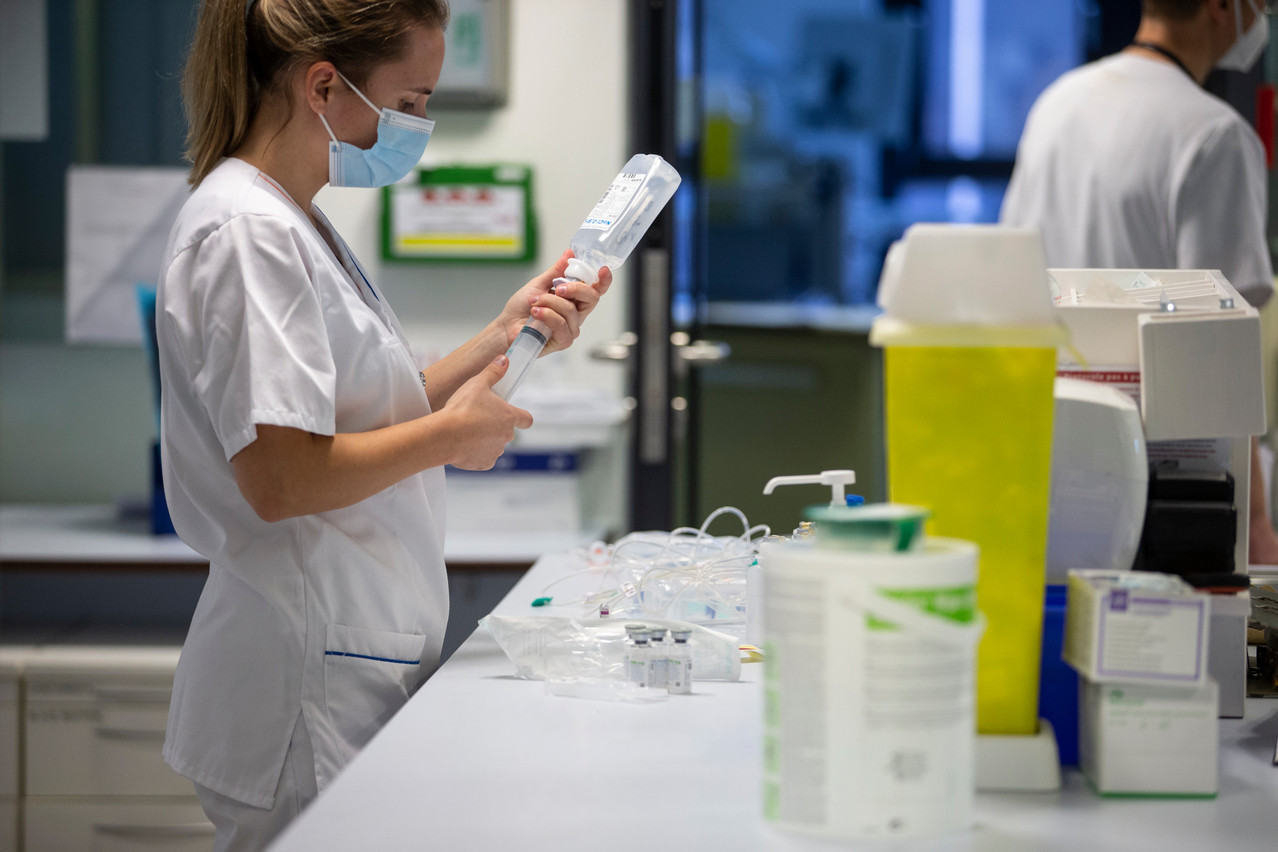The world of CovidCheck is definitely not the same for everyone. While most employees who are neither vaccinated nor recovered have to show a negative PCR test result less than 48 hours old or a certified antigen test result less than 24 hours old (from the date of the sample) to go to work since 15 January, this is not the case for those working in the care and health sector.
The Ministry of Health confirms to Delano’s sister publication, Paperjam that the latter do benefit from an exception and only need a self-test.
Anyone who works in a hospital can come into contact with a patient at any time.
While specifying that this exception concerns “doctors, nursing staff and staff likely to have close contact with a patient, resident or user,” all others therefore fall under the normal CovidCheck regime... “Unless hospital management considers that other persons, or even all staff, are likely to have close contact with patients, residents and users,” the ministry continues.
For the Federation of Luxembourg Hospitals (FHL), “anyone working in a hospital can come into contact with a patient at any time,” explains its secretary general, Sylvain Vitali. Whether it’s the person at the reception desk, the one who repairs the radiator in a room or the one who carries equipment in the corridors. Anne-Sophie Ott, legal adviser at Copas, which represents the personal care services, believes that “it is up to each institution to determine who is in close contact with the residents.”
The explanation: staff used to self-testing
While the notion of “close contact” remains unclear, it seems clear that the majority of hospital and personal care staff fall under this category. So why do they only need a self-test to gain access to their workplace? Is this not a way to avoid excessive absenteeism in a key sector?
“This difference is explained by the very nature of this sector, which includes qualified health and care professionals who are used to handling this type of test correctly,” the ministry replies soberly. It does not mean, however, that the regime is more flexible.
The argument seems flimsy, to say the least. In particular, because an employee in charge of reception or of cleaning the rooms, who is in close contact with the patients or residents, is not a healthcare professional.
The ministry retorts that “self-testing must always be supervised by a health professional”.
Neither FHL nor Copas could provide a vaccination rate for the sector. However, the health care providers’ association states that “we have a share of unvaccinated people who are tested every day.” The OGBL’s health, social services and education union, for its part, claims a “rate higher than the national level” (76.2% of the population over five years old, editor’s note).
Application to all staff
On the ground, the proper application of the exception measure varies from one establishment to another.
At Servior, “to be on the safe side, it is all the staff” who are concerned by the self-test instead of the antigen or PCR test. It is done at the entrance, supervised by a care professional.
At the Centre hospitalier Emile Mayrisch (CHEM), too, self-testing applies “to all persons”. It is done before entering the hospital. If the person in charge validates their own result, it is not done under supervision. “We assume that everyone does it correctly.”
At the Centre hospitalier du Nord (CHDN), “it’s the same for everyone”. Staff members who are neither vaccinated nor recovered have to do their self-test “at the entrance, under the supervision of the Dussmann staff. They countersign the result. Afterwards, the employee must submit the proof to his or her superior.”
The official exemption was never communicated to us.
What would happen, in the event of an inspection, to an employee who has no close contact with patients or residents and who nevertheless, as requested by his or her employer, is content with a self-test and is therefore somewhere in breach of the covid law?
“I think that it is up to the employer to take responsibility for what is considered close contact,” says Anne-Sophie Ott of Copas. “If an employee were to ask me, I would advise him or her to comply with the classic CovidCheck,” says Pitt Bach, central secretary of the OGBL’s health, social and educational services union. The feedback he receives is mainly about the opposite situation: “Staff representatives who say that there are two different rules in a company,” which can be difficult to accept.
The union regrets the lack of social dialogue in the decision-making process: “The official derogation was never communicated to us.”
This article was originally . It has been translated and edited by Delano.
